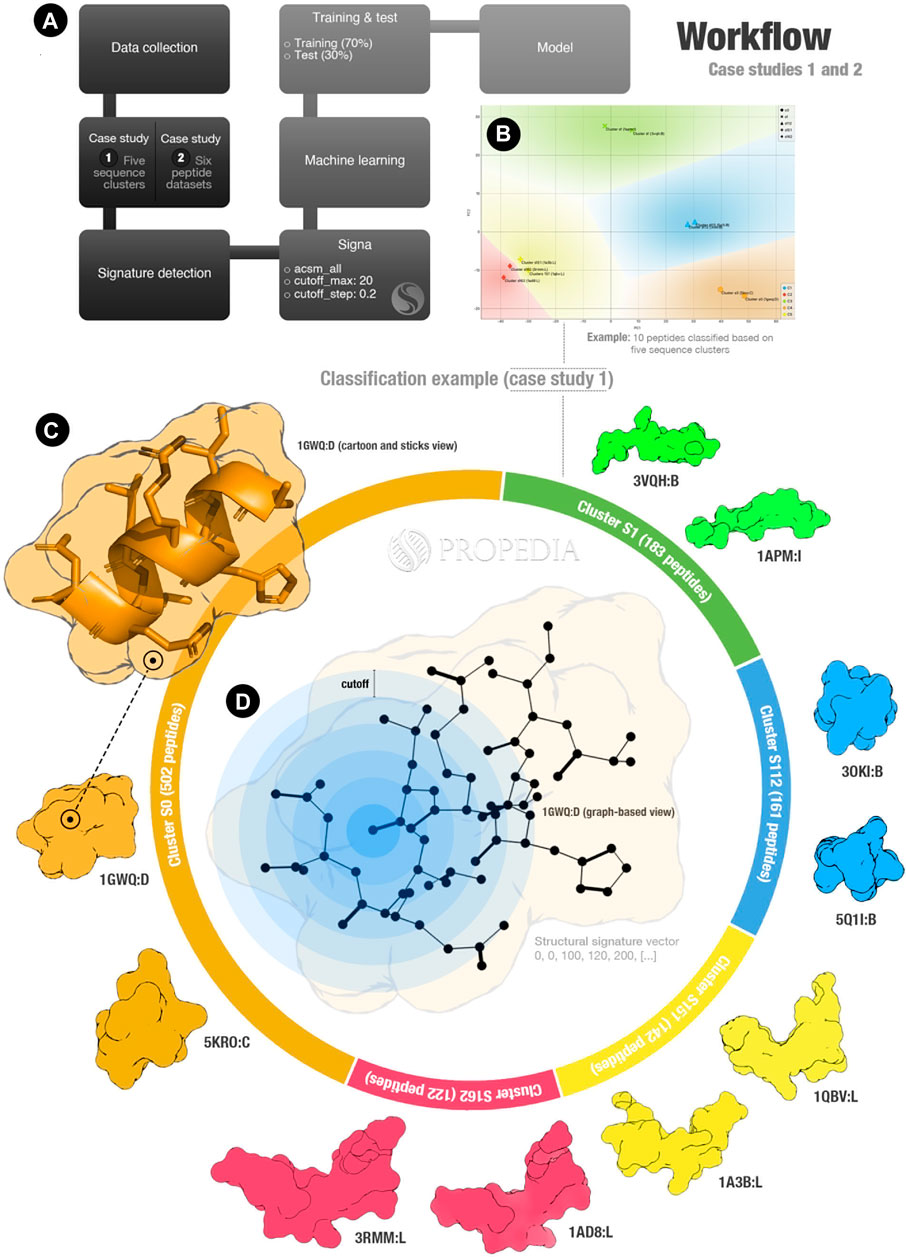Discovering the Function of Peptides in Modern Medicine and Anti-Aging Solutions
Peptides have gotten recognition as necessary components in both contemporary medicine and anti-aging techniques. Their unique capacity to affect biological procedures offers considerable restorative capacity. From handling persistent conditions to boosting skin health and wellness, peptides are becoming central to innovative treatments. Nevertheless, the intricacies of their systems and the rapid advancements in peptide treatment recommend a landscape that is constantly advancing. What ramifications might these developments hold for the future of wellness and health?
Recognizing Peptides: The Building Blocks of Life
Peptides, commonly described as the foundation of life, play an essential duty in different biological processes. Made up of brief chains of amino acids, they work as substantial parts in the formation of healthy proteins, which are important for cellular framework and function. Peptides are entailed in various physical tasks, consisting of hormone regulation, immune response, and neurotransmission. Their smaller dimension compared to proteins enables them to engage more efficiently with mobile receptors, promoting quick biological responses. In addition, peptides can indicate mobile procedures, affecting metabolic rate, fixing, and growth. In the context of contemporary medication, recognizing peptides is fundamental, as they hold prospective for healing applications, consisting of medicine growth and disease treatment. Their diverse functions underscore their relevance in maintaining homeostasis and supporting general wellness. As research proceeds, the exploration of peptides' functions in different systems might lead to groundbreaking improvements in medical care and therapy techniques.
The System of Action: How Peptides Influence Biological Processes
The complex dance of biological processes is considerably influenced by the action of peptides (Peptides Database). These short chains of amino acids function as signifying particles, playing vital functions in mobile communication and law. Peptides connect with particular receptors on cell surfaces, setting off a waterfall of biochemical responses that can change cellular habits. This communication often leads to the modulation of genetics expression, affecting processes such as metabolic rate, growth, and repair
Moreover, peptides can improve the task of neurotransmitters, enzymes, and hormonal agents, therefore make improvements different physiological features. They are associated with immune reaction, injury healing, and cells regrowth, showing their adaptability in keeping homeostasis. As messengers, peptides promote the transmission of information between cells, making certain that organic systems operate harmoniously. Understanding these systems emphasizes the possibility of peptides in therapeutic applications and anti-aging strategies, highlighting their relevance in modern-day medication.
Peptides in Medication: Targeting Persistent Conditions
With their capacity to regulate biological processes, peptides have actually emerged as appealing restorative representatives in the battle against persistent diseases. These short chains of amino acids can particularly target different pathways, offering innovative solutions for problems such as diabetes, cardiovascular illness, and neurodegenerative conditions. For example, particular peptides can regulate insulin secretion, improving glucose metabolism and enhancing glycemic control in diabetic individuals. Furthermore, peptides like angiotensin-converting enzyme (ACE) inhibitors contribute in handling hypertension, efficiently minimizing cardio risks. Research additionally highlights neuroprotective peptides that may slow down the development of illness like Alzheimer's by minimizing neuroinflammation. The versatility of peptides enables tailored therapies, reducing adverse effects contrasted to conventional pharmaceuticals. As recurring studies remain to expose the potential of peptides, their assimilation right into professional method reveals pledge for improving individual outcomes in chronic disease management, paving the means for a lot more efficient and personalized restorative approaches.
The Duty of Peptides in Skin Health and Restoration
Peptides play a crucial function in skin health and wellness by promoting mobile interaction and advertising collagen manufacturing. Their special functionality contributes to the skin's repair work and rejuvenation procedures, making them a popular selection in anti-aging therapies. As research proceeds to reveal their benefits, peptides are significantly acknowledged for their prospective to improve skin look and strength.

Peptide Capability in Skin
Skin wellness and restoration are markedly influenced by the special residential properties of peptides. These short chains of amino acids offer as vital signaling particles within the skin, helping with a variety of physical processes. Peptides contribute to the synthesis of collagen and elastin, important healthy proteins that preserve skin structure and elasticity. Additionally, they have the capability to enhance hydration by promoting dampness retention, which is critical for keeping a youthful look. Specific peptides additionally show anti-inflammatory homes, helping in the reduction of soreness and irritability. They can stimulate mobile fixing devices, making sure that the skin continues to be durable versus environmental stress factors. In general, the capability of peptides plays a substantial duty in promoting ideal skin health and wellness and vigor.
Anti-Aging Advantages of Peptides

Advancements in Peptide Treatment: Technologies and Research
Recent clinical trials have actually highlighted the efficacy of peptide treatments in dealing with various clinical problems, showcasing their potential in modern medication. Technologies in novel peptide solutions are leading the way for a lot more effective and targeted treatments. This continuous research is crucial for advancing the understanding and application of peptides in clinical settings.
Recent Scientific Trials
As new explorations in peptide therapy arise, medical tests are showcasing the possibility of these biomolecules to attend to a variety of medical problems. Current research studies have focused on peptides' efficiency in treating metabolic conditions, autoimmune diseases, and specific cancers cells. For instance, trials including insulin-mimetic peptides have actually shown encouraging cause enhancing glycemic control amongst diabetic people. In addition, scientists are examining the duty of anti-inflammatory peptides in decreasing signs of persistent problems like rheumatoid joint inflammation. The outcomes of these trials indicate that peptides may offer targeted therapies with less adverse effects contrasted to standard drugs. In addition, ongoing research aims to optimize application programs and shipment This Site methods, enhancing the total efficiency of peptide treatments in medical settings.
Novel Peptide Formulations
Technologies in peptide treatment are driving the growth of unique peptide formulas that improve restorative effectiveness and client outcomes. Scientists are progressively concentrating on optimizing peptide series, improving stability, and increasing bioavailability. These innovations enable targeted distribution, lessening side effects and optimizing restorative effects. Novel formulations, such as peptide conjugates and nanoparticle-encapsulated peptides, make it possible for improved infiltration and longer-lasting activity within the body. Furthermore, developments in synthesis techniques promote the development of facility peptides that can mimic natural organic procedures. Therefore, the possible applications of these formulas range from treating persistent diseases to addressing age-related conditions, showcasing the convenience of peptides in contemporary medicine. This continuous study remains to lead the way for innovative restorative options.
Targeted Therapies Advancement

Navigating the Market: Picking Peptide Supplements and Products
How does one effectively browse the vast array of peptide supplements readily available on the market today? Customers are typically faced with overwhelming options and differing insurance claims about efficacy. To make educated decisions, it is essential to prioritize products from respectable makers that supply openness regarding sourcing and anchor component quality.
Looking into specific peptide types and their designated advantages can aid tighten down alternatives. Consulting healthcare experts can likewise supply beneficial insights tailored to private health and wellness needs. Additionally, examining third-party testing outcomes and customer evaluations can supply point of view on product reliability and effectiveness.
Cost needs to not be the single determinant, as lower-cost alternatives may jeopardize top quality. Moreover, comprehending the planned use-- whether for sports efficiency, anti-aging, or healing-- can assist choice. By taking these actions, consumers can confidently pick peptide supplements that straighten with their wellness objectives and assumptions.
The Future of Peptides: Possible Advancements in Wellness and Health
What advancements lie in advance for peptides in the domain of health and wellness and wellness? Researchers are increasingly confident concerning the potential of peptides to revolutionize treatment paradigms. Innovative peptide-based treatments might quickly address persistent conditions such as diabetic issues, heart diseases, and neurodegenerative disorders. The development of targeted delivery systems might enhance the efficiency and minimize negative effects of peptide treatments, making them safer for widespread use.
In addition, innovations in biotechnology might result in the synthesis of unique peptides with special homes, paving the way for customized medicine. This modification can allow for customized therapies that meet specific wellness demands. Moreover, as understanding of peptide devices expands, their role in anti-aging solutions could increase, potentially postponing age-related decline. Inevitably, the future of peptides guarantees not just to enhance existing health and wellness outcomes yet likewise to present brand-new methods for wellness and long life.
Often Asked Questions
Exist Any Kind Of Negative Effects Linked With Peptide Supplements?
Yes, peptide you can find out more supplements can have side results, including allergies, stomach issues, and hormone imbalances. It is essential for individuals to consult medical care experts prior to starting any kind of peptide program to minimize potential risks.
Exactly How Do Peptides Contrast to Conventional Medicines?
Peptides usually provide targeted actions with less side results contrasted to standard medications. Their specificity can improve efficacy in particular treatments, yet standard drugs may give wider applications and developed safety profiles for different problems.
Can Peptides Be Safely Integrated With Various Other Treatments?
Peptides can normally be securely integrated with other therapies, though private feedbacks might differ. Consulting medical care specialists warranties optimal combinations and decreases potential interactions, enabling for customized healing techniques that boost overall effectiveness while assuring individual safety and security.
What Is the Suggested Dosage for Peptide Supplements?
The recommended dosage for peptide supplements usually varies by type and function, however ranges from 100 to 300 milligrams each day. Consulting a health care specialist is advised to identify the suitable dose for private requirements.
Are Peptides Reliable for Weight-loss and Muscle Gain?
Peptides can help in weight loss and muscle gain by advertising fat metabolic process and enhancing muscle mass synthesis. Peptides Database. Private reactions vary, and outcomes are typically best achieved when incorporated with correct diet regimen and exercise regimens.
In enhancement, peptides can signal mobile processes, influencing growth, metabolism, and repair service. In the context of modern medicine, recognizing peptides is essential, as they hold potential for restorative applications, including medication growth and condition therapy. Developments in peptide therapy are driving the advancement of novel peptide solutions that enhance healing efficacy and patient outcomes. Novel formulations, such as peptide conjugates and nanoparticle-encapsulated peptides, enable boosted infiltration and longer-lasting action within the body. Recent study has actually led to the development of peptide conjugates and engineered peptides that can uniquely bind to receptors on infected cells.